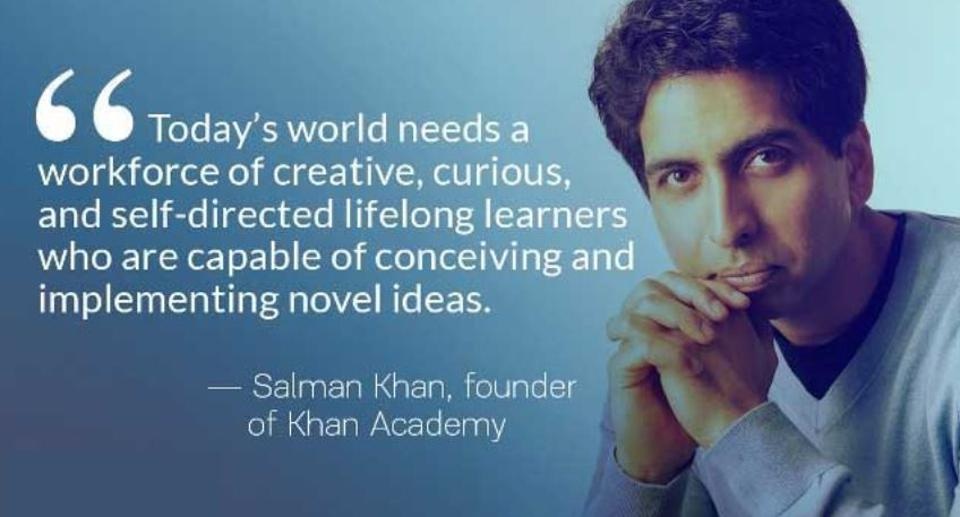The Covid-19 Crisis Is A Boost To Educational Technology Companies
(Mayra Rodriguez Valladares for Forbes)
In the daily flurry of negative news, investors should be careful not to lose sight of the fact that while Covid-19 has caused thousands of companies to struggle, default on their debt, or to declare bankruptcy around the globe, it has also created great business opportunities. With thousands of schools, universities, and job training center closed around the world, many since February, the need for online education for educators, parents, students and life-long learners has never been more urgent.
Covid-19 has caused a significant disruption in the world of education, but it has been a boon to education technology (EduTech) companies. Even when a vaccine for Covid-19 is approved, online education is here to stay filling gaps that already existed in education curricula. Online education has been helping reach underserved populations students as well as students with special needs and disabilities. Additionally, many parents and educators are likely to use online education to be ready for the next public health or natural disaster.
Anytime any student or client asks me for advice, I always tell them that long gone are the days when people went to a place of employment and stayed there for almost a lifetime. I myself take classes online several times a year to stay-up-to date in my professional field. The EduTech companies below cater mostly to K-12, but many also provide online education to students in higher education as well as to those looking for training for their current or prospective careers.

EduTech Companies
Investors at banks and at institutional investing firms would do well to learn about these publicly traded companies, many of which are in education technology (EduTech) niche of the technology sector.
· Arco Platform Limited (ARCE) serves more than 1,360,000 students and 5,400 private schools throughout Brazil from kindergarten to high school.
· Chegg (CHGG) provides digital and physical textbook rentals, online tutoring, and other student services.
· China New Higher Education Group (2001.HK) is an in person and online provider of vocational education and teacher training in seven provinces in China.
· Connections Academy (LSE:PSON, NYSE:PSO) is owned by Pearson an online company for K-12 private schooling.
· Instructure, Inc. (INST) is an online educator for K-12, college, and business professionals.
· Kahoot (KAHOOT-ME.OL) headquartered in Norway, is an online educator for primary and secondary students as well as for lifelong learners in business. It was founded in partnership with the Norwegian University of Science and Technology.
· K12 (LRN) provides online education, in some cases with in person instruction, for elementary and secondary students. It also concentrates on providing world language instruction in Spanish, French, German, Latin, and Mandarin.
· New Oriental Education & Technology Group Inc (EDU) is a Chinese company providing online pre-school – 12th grade courses as well as consulting services to students wishing to study abroad.
· Perdoceo Education Corporation (PRDO) is an online higher education provider where students can obtain undergraduate and postgraduate degrees.
· Tal (TAL) is a China-based K-12 after school online educational and tutoring company.
· 2U (TWOU) is an educational technology company which partners with top universities to educate higher education and lifelong learners especially with technical skills.
The above companies’ shares and bonds may be bought singly, or in some cases, they are part of Exchange Traded Funds and mutual funds. Caveat Emptor! Buyer beware. In order to conduct your own due diligence on the above companies, please do your own homework and/or consult your own financial advisor.
A good way to start your analysis is by researching the companies with an eye to analyzing their strengths and weaknesses and the opportunities and threats that lie before them. In combination, another framework that can help you analyze these companies is Harvard Business School Professor Michael Porter’s Five Forces model. This framework helps you look at the supplier power, buyer power, competitive rivalry, substitution threat and threat of new entry that can impact the companies that you are analyzing. Porter’s model can help you figure out the competitive advantages that these companies have.
For a more robust analysis of companies, I use a corporate credit framework. The purpose of a corporate credit analysis is to determine whether a company will default, and if it does, how much would a lender suffer in losses. This analysis encompasses identifying the country and economic factors that can impact the relevant industry, in this case, education technology. From there, you analyze the balance sheet, income statement and cash flow statements of the company in order to determine whether the company is sufficiently profitable and liquid to keep paying lenders and bond holders.
If like a stock analyst, you want to forecast the price of these companies’ shares, the methodology has some similarities to the corporate credit framework. Once you get to the balance sheet, income statement, and cash flow statement, you can design assumptions to create a net present value model to forecast the price of shares. Qualitative and quantitative information to help you conduct your SWOT, Porter’s Five Forces, a corporate credit analysis, or to forecast the price of shares, is in the live links above.


